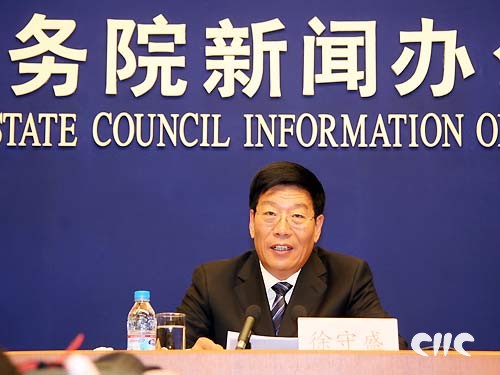Fuxi, the legendary first emperor of China, will be "guest of honor" at a high-level official ceremony every year from this year on, said the governor of his home province yesterday.
Thousands of people, including about 500 from overseas, will pay their respects to the mythical Fuxi who allegedly laid the foundation for Chinese civilization, said Xu Shousheng, governor of northwest China's Gansu Province, at a press conference his government co-hosted with the State Council Information Office.
The ceremony will take place on June 22 in Tianshui of Gansu, recorded in some historic documents to be Fuxi's birthplace.
Xu will address the ceremony, which will also be attended by state leaders.
Ancient Chinese believed that there was an "emperor", who lived more than six millennia before Qin Shihuang (259-210 BC) who became China's first emperor by overthrowing all the other state kingdoms and uniting the country in 221 BC.
Fuxi was respected by the people of his tribe and all other tribes. He taught them to weave fishing nets, feed animals and farm.
He set up a basic structure of social governance, introduced the first regulations on marriage, and composed the first music.
Above all, he created the bagua, or Eight Trigrams, a fundamental philosophical concept in ancient China, which is generally represented with an octagonal diagram with one trigram on each side.
To remember him, people in his hometown have never stopped paying him respect, said Zhang Guangzhi, mayor of Tianshui. They climb a hill and offer him various kinds of meat as a sacrifice on the 16th day of the first month of the lunar calendar every year.
There is also a six-century-old temple for Fuxi and a historic site showing human habitation about 8,000 years ago in Tianshui, Zhang said.
(China Daily May 25, 2007)
